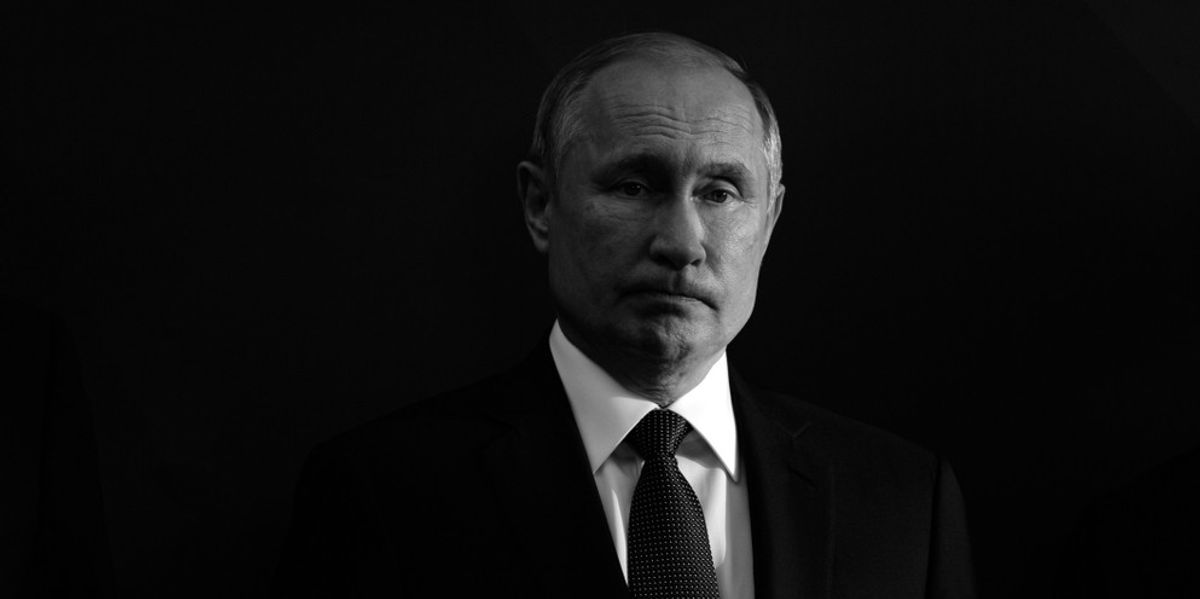To punish Russia for its invasion of Ukraine in early 2022, Western governments froze the assets of the Russian Central Bank, Russian financial persons, and officials in the amount of approximately $330 billion. They are now seeking to use these funds to help pay for the reconstruction of Ukraine and help compensate for some of the enormous costs incurred by the West in this war.
From the outset, the seizure of these assets has raised serious legal concerns that have made their use to fund reparations both difficult and controversial. The ensuing legal battles will no doubt last decades, while doing nothing to actually help people in Ukraine. Moreover, since most Russians find the idea of using their purloined assets to serve Western geopolitical objectives “highly offensive,” it will add yet another body blow to a relationship already fraught with recriminations.
I would therefore like to present an alternative approach that, while it may not satisfy the lust for vengeance, might actually serve to promote both reconstruction and reconciliation.
Expanding on ideas that Ted Snider and I recently proposed for a negotiated settlement in Ukraine, I suggest that seized Russian assets be restored to Russia, de jure. This would be an essential first step in restoring the faith of investors in the legal underpinnings of the international financial system. Beyond that, de facto, and as an essential part of healing the wounds of war as quickly as possible, Russia should then be invited to invest these resources in rebuilding Ukraine.
Historically, Russia has always been Ukraine’s largest investor, dwarfing the EU. Dmitry Medvedev, then Russia’s prime minister, put the cumulative value of the tariff waivers, trade preferences, and gas subsidies that Ukraine received from Russia between 1991 and 2014 at roughly $250 billion. Over this same period, Western financial institutions promised Ukraine $62 billion in aid, but actually disbursed less than half this amount. The loss of Russian investment was thus a terrible blow to the Ukrainian economy, especially since comparable Western investments never materialized.
Since 2014, Russia has committed significant resources to the reconstruction of Donbass and Crimea, and is making ambitious plans to do so again in the newly annexed territories of Ukraine — a strong indication of its interest in investing in the Russian-speaking regions of Ukraine. Conversely, Russia is as unlikely to want to rebuild those regions of Ukraine that are openly antagonistic to it, as the West has been to rebuild Donbass and Crimea. But while Russia and the West already have plans to invest in their preferred parts of Ukraine, it has proven difficult to raise the enormous sums of money needed — by some estimates, as much as one trillion dollars.
This problem would be much easier to solve if the task of reconstruction were regarded as a joint endeavor. Perhaps as part of a final and comprehensive peace settlement, a UN fund could be set up for the reconstruction of Ukraine as a whole, under which both Russian and Western aid and investments could be managed and coordinated — a good model, potentially, for post-war cooperation in other areas. A symbiotic division of labor might then ensue, whereby the West could use its funds to rebuild western and central Ukraine, while Russia could use its funds to rebuild eastern and southern Ukraine.
This proposal stems from my conviction that any successful Ukrainian reconstruction program should conceive of assistance to Ukraine not as a vehicle for punishing or manipulating Russia, but rather for healing and reintegration. This approach should be applied first within Ukraine itself, to help heal its persistent regional divisions (which are still very deep, as President Zelensky himself recently acknowledged), and eventually expanded to encompass Ukraine, Russia, and all of Europe.
Since Ukraine is, in any case, destined to remain an object of geopolitical competition, it is important to find creative ways for this competition to manifest itself in constructive, rather than destructive ways. If, as both sides claim, they are competing for the hearts and minds of the people, then let them compete in generosity.
Some might object that such a division of labor would create mutually exclusive economic dependencies that could lead, ultimately, to Ukraine’s partition. I would argue, however, that such a partition is far more likely under the current approach to post-war reconstruction, which envisages using Western funds to assist only those regions of Ukraine that are under Kyiv’s control. By contrast, if cross-border trade is allowed to serve its natural function of encouraging mutual interaction, partition would become far less likely. It is worth recalling that it was Kyiv’s refusal to resume full commercial and banking ties with Donbass, despite these being a key stipulation in the Minsk-2 Accords, that contributed to the grievances that led in turn to the present conflict.
But the internal re-knitting of Ukraine through commerce would be only the first of many potential benefits. The positive impact of the restoration of trade ties would soon be felt over the entire European continent, especially if Ukraine (or at least its most damaged regions) were afforded a special economic status that allowed both EU and Russian/CIS goods to pass freely between Europe and Eurasia.
Of course, extremists on both sides will immediately object to such a compromise. Those who say, “punish Russia, come what may,” will argue that justice must triumph over all other considerations. Meanwhile, those who cry, “to Hell with the West, our cause is just,” will argue that sovereignty must prevail at all costs. But those who can tolerate some untidiness in their world should welcome such a compromise, since it offers both immediate and tangible assistance to those who need it most—the long-suffering people of Ukraine.














